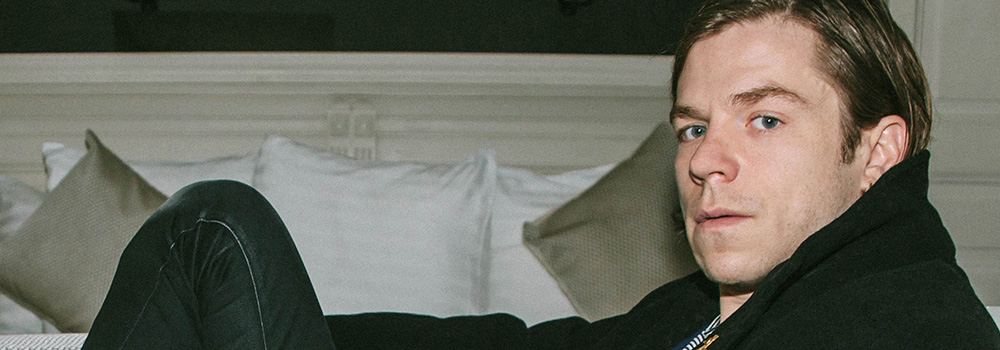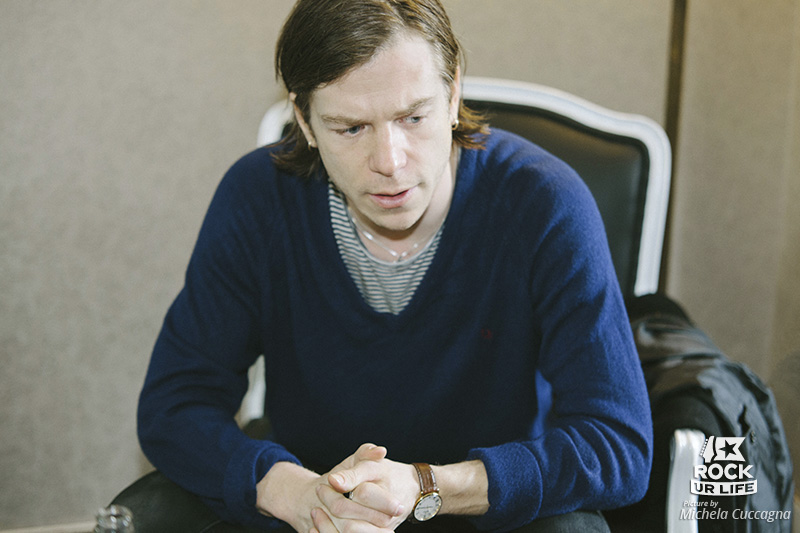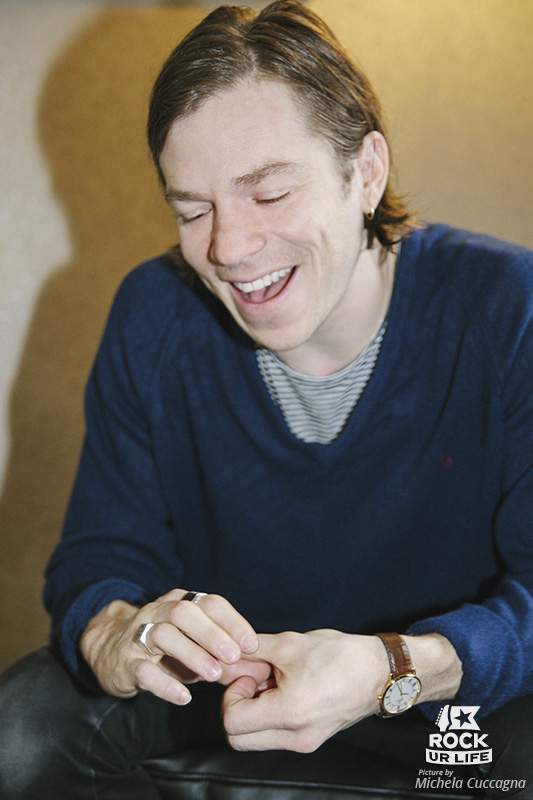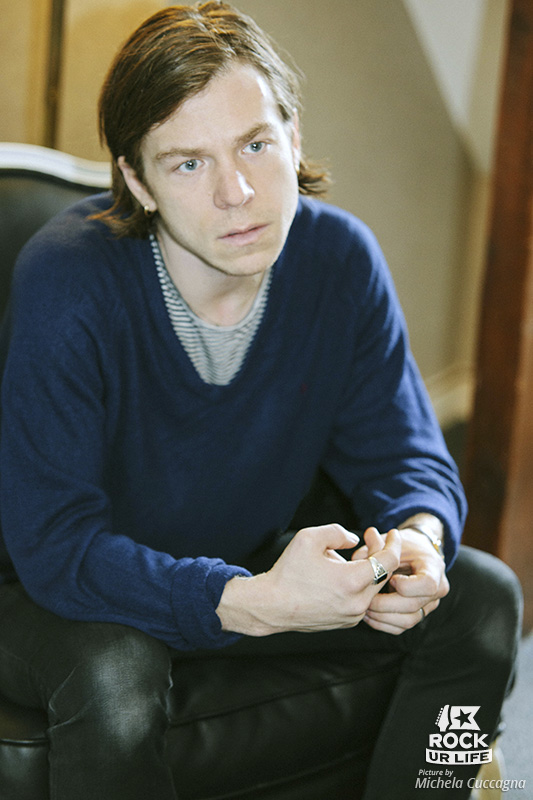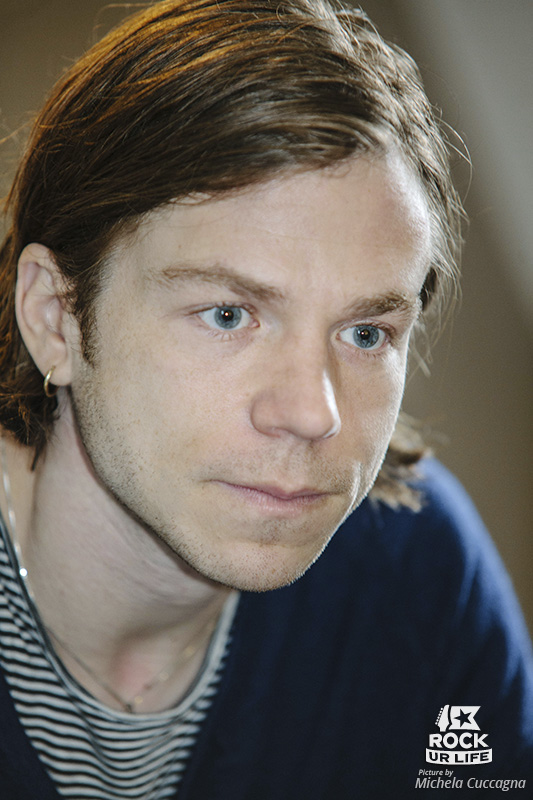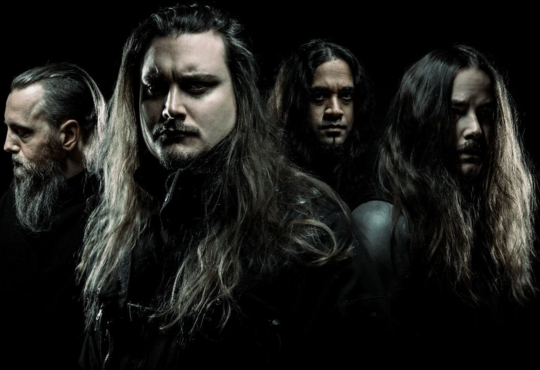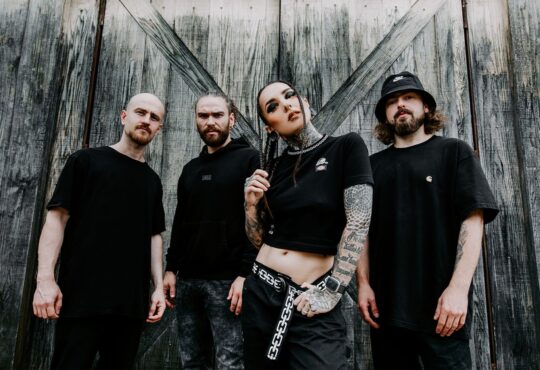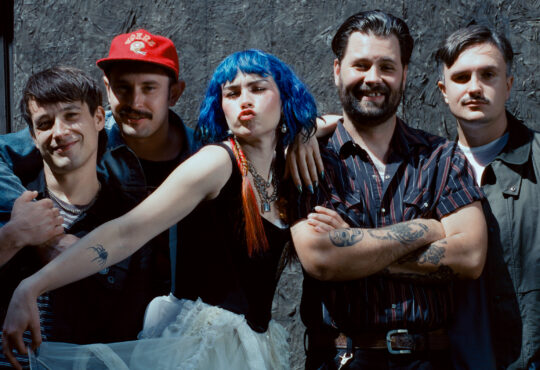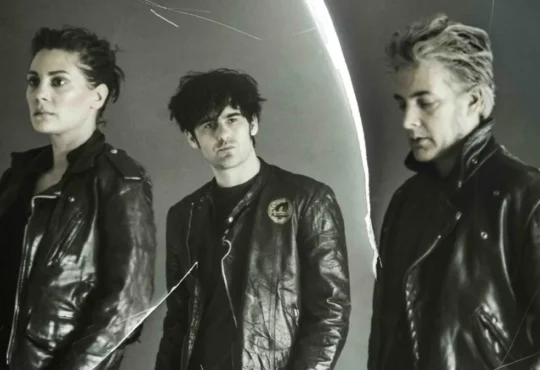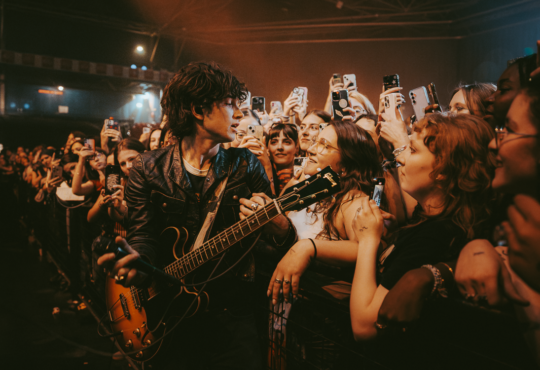A few hours before a remarkable show at Le Trabendo, RockUrLife has the opportunity to sit down with Matt Shultz, Cage The Elephant’s frontman. Flashback on a meeting cadenced by the humility of a singer whose sweetness off-stage constrasts with the crazy stage persona for which he is known for.
First, how are you? We’ve heard that you’re very tired.
Matt Shultz(vocals): I’m good. And tired indeed! Totally hallucinating.
Let’s start with your new album. For me, the main themes of “Tell Me I’m Pretty” are love, trouble, melancholia and sadness. The beauty of art is that the audience can have its own perception and interpretation of things, whether it’s different or not from the actual meaning of it. So, what do you interpret your work to be about?
M: I think that those are pretty accurate observations. I tried to write about things that I can believe in, and the best way for me to do that is to speak from personal experiences, whether it’s creating a fictional story and using that as a protecting way to tell some things that aren’t too close to myself. I think the record is about many different things, love being one of them, in different shapes and forms. It is also about adversity, being at the mercy of destiny, reaping what you saw. If you plant an apple seed, an apple tree will grow. Most specifically, there’s some songs that you said are about manic depression, some songs about pitfalls in life. “Cold Cold Cold” is inspired by the dark period I had to deal with for a long time, I think I had nightmares for an entire year. I was in this place where I told myself that maybe I’ll check myself into a hospital. So, I just had this idea of throwing yourself on an hospital bed, like “Alright. Take me!”. At the same time, temptations in life. I got married two years ago. Before marriage, adultery doesn’t exist, but once it does, it’s a real thing. I just wanted to be very transparent on this record. I remember hearing a song by Simon & Garfunkel a few years ago, and the honesty was so rich that I made the decision to never write songs the same again, ever. When I was younger, I’d put a lot of stock in persona. Part of the equation was to lionize this image of rock n’roll. I feel that it destroyed so much of a song’s ability to have a lasting impact, dumping the cathartic nature of the experience. So I tried to get rid of that. It’s probably more than what you’ve asked for this question. (laughs)
For this album, you used a lot of storytelling. You based your lyrics on real life events but also fictionalized personal experiences. Was it a way of sharing personal experiences without getting too personal?
M: Yes, it’s definitely part of it. Just trying to possibly protect yourself and people you’re writing about, because some of the words are very hurtful, violent maybe. Honesty can be damaging. Part of it too was just that I was dealing with current things. I have a horrible memory, because I just abandoned my past. As soon as it happens, it’s over for me. I never want to think about it again. This is how it’s always been, it’s done and I move ahead. But for this record, I wanted to stop it, and go back. I wanted to sit down with those experiences and try to live with them. “Sweetie Little Jean” was one of those songs. I was dealing with this relational thing where my manic depression is involved. When there’s that kind of thing, I can compare it to someone being kidnapped, stolen, even if they’re sitting right beside you. I imagined seeing a trail of tears everywhere in the house; you stare but can’t find the person you’re looking for. When I was twelve years old, one of the girls that lived in our neighborhood, and to whom I was very close to, was abducted and murdered. She was my brother’s girlfriend, and her big sister was my girlfriend. I mean, of course we were twelve, but still. I remember it was a passing from innocence to realizing that the world isn’t just all a happy place. It was intense.
The sound for this new album heads toward late 1960’s rock. What is so special about that classic sound?
M: I think what we were reaching for was a timeless sound. Something that couldn’t be pinned to a particular time period but somehow felt like it was relevant whenever it was placed. I think that with all those streaming services that are surfacing, it changes the way we’re consuming music. Our ears are evolving. If we take discovery modes for example: let’s take a record that I love. I put it on my playlist, and based on an algorithm, it’s going to send me new artists I don’t know. And I might discover some bands. I could switch from Nina Simone to Rodrigo Amarante, and so on. Lines are getting blurred. I think that’s incredible, because it weekends the strong whole of trends on music. From my point of view, this is something we’re all reaching for. We want to be challenged, as musicians or as listeners. We want to hear new ideas, but we also want to connect to our past, our humanity. We’re always moving in that direction.
You’re all coming from artistic backgrounds, and as a result art is an important element in your band. What is the relationship between your music and other artistic endeavors?
M: I do really believe in intentionality in creative works. Any kind of creative work is a form of communication, and I think that we’ve loaded it up with this whole baggage of idealism that separates the few from the many. It confuses people in their creative process because they’re trying to fit into certain stereotypes to consider themselves artists. If I can do my little part by rattling the cage, and hopefully help to share whatever I’ve learned about the creative process to get them thinking about intentionality and not thinking about trends, fitting some kind of image that society has deemed acceptable to be creative, intellectual or poetic. The only thing we should be focused on is communicating. This is also why I try to stick to stories: it’s a safety for me, a protection. I guess what I’m just trying to do is to get to what it is that I love about art and creativity, but I hate the leading side of it. I hate the word “artist”, or “genius”. Like, who? There might be special moments, special people in special places for sure, but to single a small group of people out from a large one to say “These people are special and those are not. These people can creative and those can’t even try.” is ridiculous.
Let’s talk about ego now. I have an ego, you have an ego, everybody has it, but I think in terms of sharing a creativity, making music together, there must be a time when those egos clash. Somebody might have an idea, which is not really accepted by others etc. From your experience, how much ego is present in the process of shared creation?
M: A lot. (laughs) It’s always present, even though it’s not always malicious. Especially when you’re in a group of people all similarly passionate about the perspective. My brother is in the band as well, our egos collide daily. (laughs) But I think that’s beautiful too because there’s a humbling side of it. When the clashing happens, comes the time of reflecting.
Talking about touring now, there’s a big price to pay when you’re a touring musician, especially when it comes to family life. I read something that Anita Pallenberg once said. She said: “It’s such a lonely existence, living with a rock n’ roller. No matter how much he loves you, he will always love his music more”. Does being a musician mean being selfish somehow?
M: I think being a human being means being selfish. (laughs) Being a touring musician definitely can bring that nature out of you for sure. I think we’re all selfish.
Alright, we’re done! Thank you for your answers.
M: Thank you!
Website: cagetheelephant.com



